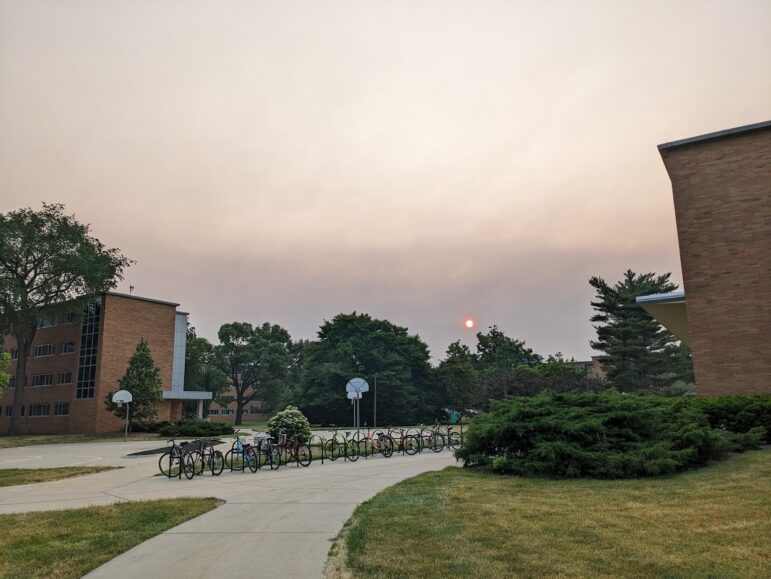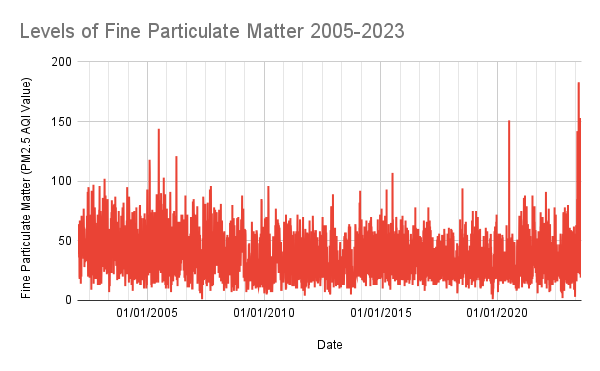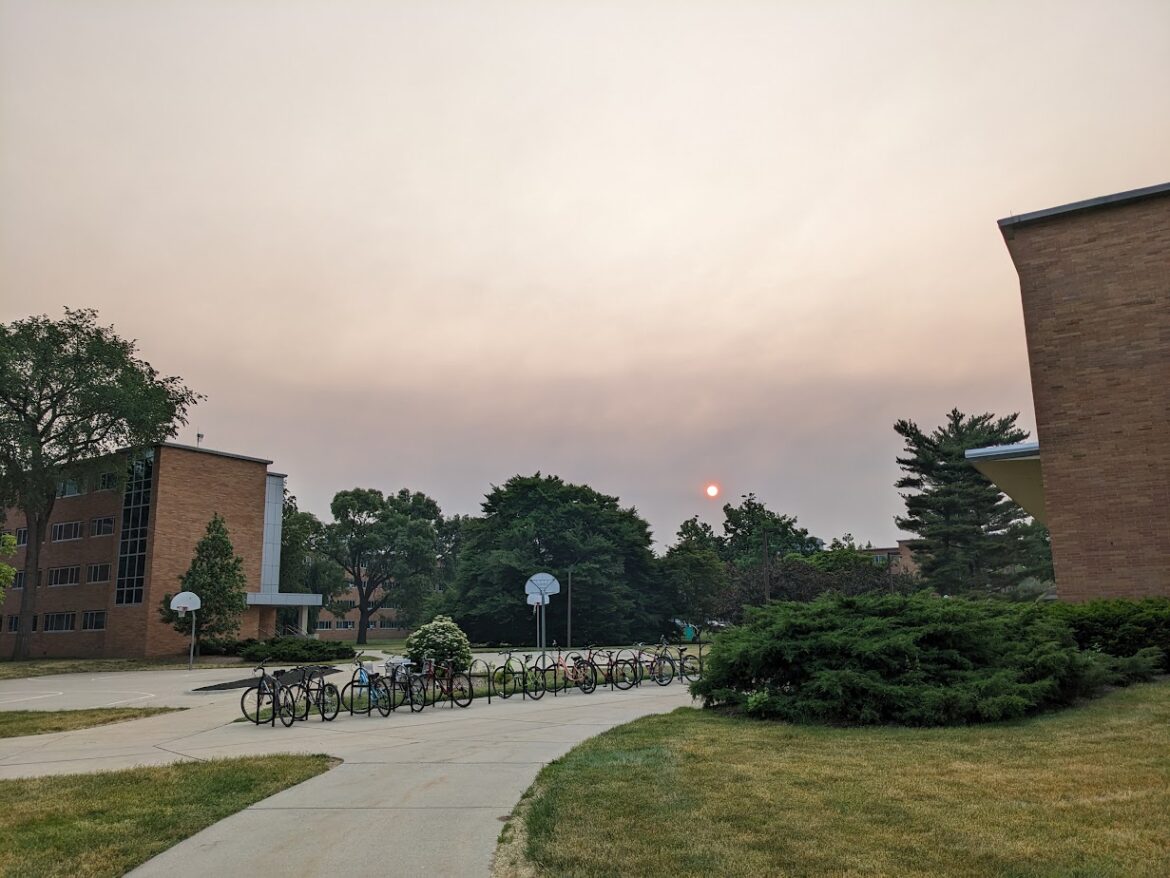
Nicoline Bradford
Haze from the Canadian wildfires hung over Brody neighborhood at MSU in July, 2023.This summer Michigan residents saw the real consequences of climate change.
In early June and throughout July, Michiganders woke up to hazy days and air quality warnings.
Robert Wahl, an environmental epidemiologist at Michigan State University, said the levels of air pollutants this summer are very unusual for Michigan.
The Air Quality Index, AQI, is used to measure levels of air pollutants on a scale of “good” to “hazardous.” While AQI measures multiple pollutants, the most concerning is particle pollution smaller than 10 micrometers.This is called fine particulate matter and is a direct result of the wildfires raging through Canada.
Wahl said there is a direct link between the wildfires and climate change.
“One thing we’re seeing with climate change is an increased number of wildfires just period,” he said. “That’s because with climate change we get drought periods and extreme temperatures which leaves the land vulnerable to fire.”
Compounding the air pollution is the increasing ozone levels from decades of climate change.
“The thing we have to remember is that ozone is still there. It didn’t go anywhere,” he said. “So we have this particulate matter on top of the ozone that we always have in the summertime.”
Air Quality and Health
The particle pollution from recent wildfires is dangerous because it is small enough to be inhaled, and even enter the bloodstream, according to the EPA.
The EPA lists health risks linked to particle pollution such as aggravated asthma, decreased lung function and increased mortality of heart and lung disease.
Those with pre-existing conditions are especially susceptible and should take extra precautions.
Humans are not the only ones affected by poor air quality.
Seven Mattes is a professor at the MSU Center for Integrative Studies. She studies what happens to animals during environmental disasters.
“The big point is simply that humans are animals too,” she said. “So just like with our lungs, any animals with respiratory systems are gonna have concerns with poor air quality.”
The big difference is that humans can protect themselves, but animals have no defenses.
“Poor air quality can also impact things like locating food sources,” she said. “Especially if they rely on their sense of smell or if they’re fatigued by the impact and so on.”
She said this is in addition to habitat destruction caused by the wildfires.
Mattes said to provide as much shelter as possible and to limit activity for pets and companion animals when the air quality is poor. If it’s not healthy for people, it’s not healthy for animals.
“You are their caretaker,” she said. “You have the responsibility of trying to lessen the impact for them.”
Beyond Physical Health
The dangers of air pollution extend beyond the immediate health effects.
Environmental justice is a concept that considers who is impacted by climate change and environmental risks, according to the EPA.
“Environmental justice is the fair treatment and meaningful involvement of all people regardless of race, color, national origin, or income, with respect to the development, implementation, and enforcement of environmental laws, regulations and policies,” according to the agency’s website.
David Turcotte is a research professor at the University of Massachusetts and is an expert in environmental health and justice.
Turcotte said air pollution is dangerous for a healthy person, but especially problematic for someone with pre-existing conditions.
He used asthma as an example.
“The lower the income, the higher the asthma rates,” he said. “It’s clear that certain geographical areas are at a higher risk. Many low-income people live near heavily trafficked and urban areas which already generate a lot of contaminants.”
Particle pollution only amplifies these disparities.
“Climate change is not impacting everyone equally,” he said. “There are disproportional impacts on lower-income, minority, immigrant and indigenous communities.”
When the air quality is dangerous, experts advise people to stay inside, but not everyone has that luxury.
“We need to ensure that there is true equity and justice in the transition towards clean energy,” Turcotte said.
What Now?

Particle pollution is a fact of climate change that will continue to affect people across the world.
A recent study from Columbia University discusses how air pollution needs to be considered when creating policies to mitigate climate change.
Luke Schiferl, co-author of the paper, said that while we can’t directly stop the wildfires, investing in filtration systems can help with exposure.
He said there are many policies and steps governments and corporations can take to mitigate climate change and thus improve air quality. The issue lies in motivating them to do so.
“There’s a lot of resistance to change,” he said. “If it was easy, things would have happened by now.”
Mattes said that Michigan is considered a climate haven and has been relatively sheltered from the harms of climate change.
“When the fires start to impact you, it hits a little closer to home,” Schiferl said. “The air pollution is bad for a week, but then gets better. We have a heat wave, and they’re getting worse, but we still have cold winters and all. So what’s the point that people start to care? When is it worth it for us to change instead of just riding out each event?”
Unfortunately, he said it is probably going to get worse before it gets better.
